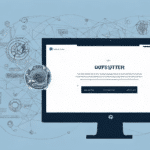Fishbowl Inventory vs Oracle Warehouse Management Cloud (WMS)
Effective inventory management is essential for businesses handling goods or products. The evolution from manual record-keeping to sophisticated inventory management systems has transformed how businesses operate. Among the leading solutions, Fishbowl Inventory and Oracle Warehouse Management Cloud (WMS) are prominent choices. This article provides an in-depth comparison to help you determine which system aligns best with your business requirements.
Overview of Inventory Management Systems
Inventory management systems are software applications that assist businesses in tracking, managing, and optimizing their inventory levels. These systems offer real-time data on stock quantities, orders, and storage locations, enabling businesses to improve efficiency and accuracy in their inventory processes. From simple spreadsheet-based tools to complex enterprise resource planning (ERP) systems, inventory management solutions cater to a wide range of business needs.
One of the primary benefits of these systems is the reduction of inventory carrying costs. By providing real-time insights into inventory levels and demand, businesses can avoid overstocking and understocking, mitigating unnecessary expenses. Additionally, these systems enhance order fulfillment rates by ensuring that the right products are available when needed.
Advanced inventory management systems also improve forecasting accuracy by analyzing historical data and trends. This capability empowers businesses to make informed decisions regarding inventory levels and procurement, minimizing the risk of stockouts and excess inventory that can lead to obsolescence and waste.
Fishbowl Inventory
Key Features
- Real-Time Inventory Tracking: Monitor inventory levels, orders, and shipments in real-time.
- QuickBooks Integration: Seamlessly integrates with QuickBooks for streamlined accounting processes.
- Barcode Scanning: Enhance accuracy and efficiency in inventory management with barcode scanning capabilities.
- Customization: Offers numerous add-ons tailored to specific business needs.
- Detailed Reporting: Generate comprehensive reports on inventory levels, sales, and purchasing trends.
Advantages
- Highly Customizable: Easily adapt the software to fit specific business requirements.
- Real-Time Tracking: Access up-to-date inventory and order information for informed decision-making.
- Seamless Integration: Integrates smoothly with QuickBooks, enhancing accounting efficiency.
- Excellent Customer Support: Benefit from responsive and knowledgeable support teams.
Fishbowl Inventory's advanced reporting features allow businesses to analyze inventory data thoroughly, enabling data-driven decisions that optimize inventory levels, reduce costs, and improve overall operational efficiency.
Limitations
- Cost: The software can be expensive, especially for businesses requiring advanced features.
- On-Premises Installation: Requires installation on local servers, which can be challenging without technical expertise.
- Scalability: May not scale effectively for rapidly growing businesses, potentially necessitating a switch to a more advanced system.
- Integration Limitations: Limited integration with non-QuickBooks software systems can lead to data inconsistencies.
- No Mobile App: The absence of a mobile application can be a drawback for businesses needing on-the-go access.
Oracle Warehouse Management Cloud (WMS)
Key Features
- Cloud-Based Platform: Access inventory management tools from anywhere without the need for local servers.
- Advanced Warehouse Management: Features like cycle counting, wave planning, and dock scheduling optimize warehouse operations.
- Integration with Oracle Cloud Applications: Seamlessly connects with other Oracle applications such as Oracle Transportation Management and Oracle Order Management.
- Mobile Application: Enables warehouse workers to perform tasks using handheld devices, increasing efficiency.
- Real-Time Analytics and Reporting: Provides actionable insights into inventory levels, order fulfillment rates, and warehouse productivity.
Advantages
- Cloud-Based: Eliminates the need for businesses to maintain their own servers, reducing IT overhead.
- Highly Scalable: Supports business growth and expansion without the need for system upgrades.
- Advanced Warehouse Management: Enhances warehouse operations with sophisticated management features.
- Seamless Integration: Integrates effortlessly with other Oracle applications, ensuring a smooth flow of information across departments.
- Real-Time Visibility: Offers up-to-date insights into inventory levels and warehouse operations, facilitating quick and informed decision-making.
Oracle WMS's comprehensive features enable businesses to optimize their warehouse operations, improve efficiency, and enhance customer satisfaction significantly.
Limitations
- Cost: The platform can be expensive, particularly for small and medium-sized businesses.
- Complexity: The software's complexity may require significant investment in employee training.
- Limited Integration with Non-Oracle Applications: Businesses using multiple software applications may face challenges, leading to potential data inconsistencies.
- Customization Constraints: Designed for standard warehouse processes, it may not be sufficiently customizable for businesses with unique or complex operations.
- Implementation Challenges: The implementation process can be time-consuming and disruptive, which may be problematic for businesses that cannot afford extended downtime.
Comparative Analysis
Features Comparison
- Inventory Tracking: Both systems offer real-time tracking, but Fishbowl excels in customization, while Oracle WMS provides more advanced warehouse management features.
- Orders and Shipments Management: Oracle WMS offers more sophisticated tools for managing large-scale operations across multiple locations.
- Customization: Fishbowl allows for greater customization to fit specific business needs compared to Oracle WMS's standardized processes.
- Reporting: Fishbowl integrates seamlessly with QuickBooks for financial reporting, whereas Oracle WMS offers extensive analytics suitable for large enterprises.
Pricing Comparison
Pricing is a critical consideration when choosing between Fishbowl Inventory and Oracle WMS:
- Fishbowl Inventory: Utilizes a perpetual license model with a one-time fee, which can be more cost-effective in the long run for businesses that prefer upfront payments.
- Oracle WMS: Operates on a subscription-based pricing model, offering flexibility but potentially resulting in higher ongoing costs.
Ultimately, the pricing for both systems varies based on the specific needs and requirements of your business. It's advisable to request detailed quotes and consider the total cost of ownership over time.
Pros and Cons
Fishbowl Inventory
- Pros:
- High level of customization
- Ease of use
- Seamless QuickBooks integration
- Excellent customer support
- Cons:
- High initial cost
- Lack of cloud-based storage
- Limited scalability
Oracle WMS
- Pros:
- Cloud-based storage
- Highly scalable
- Advanced warehouse management capabilities
- Cons:
- Complexity requires extensive training
- High subscription costs
- Limited integration with non-Oracle applications
User Reviews
Fishbowl Inventory
Users of Fishbowl Inventory generally praise its customization capabilities, real-time inventory tracking, and seamless QuickBooks integration. However, some users have highlighted challenges related to scalability and the high cost of the software, which may be a concern for smaller businesses or those planning rapid growth.
Oracle WMS
Oracle WMS receives mixed reviews. Many users appreciate its cloud-based infrastructure, advanced warehouse management features, and scalability, which are particularly beneficial for large enterprises. On the downside, some users find the software complex and costly, which can hinder its usability for smaller businesses or those with limited budgets.
Choosing the Right System for Your Business
The decision between Fishbowl Inventory and Oracle WMS depends on your business's specific needs and circumstances:
- Choose Oracle WMS if:
- Your business requires advanced warehouse management capabilities
- Operates across multiple locations
- Has a substantial budget for ongoing subscription costs
- Choose Fishbowl Inventory if:
- Your business values customization and ease of use
- Requires seamless QuickBooks integration
- Operates on a tighter budget with a preference for one-time licensing fees
Conclusion: Making the Right Choice between Fishbowl Inventory and Oracle WMS
Both Fishbowl Inventory and Oracle WMS are robust inventory management systems tailored to different business needs. Fishbowl Inventory offers high customization and seamless QuickBooks integration, making it ideal for small to medium-sized businesses with specific requirements. In contrast, Oracle WMS provides advanced, scalable warehouse management capabilities suitable for large enterprises operating across multiple locations. When choosing between them, consider factors such as features, pricing, ease of use, scalability, and customer support to ensure the best fit for your business's unique requirements and budget.




















